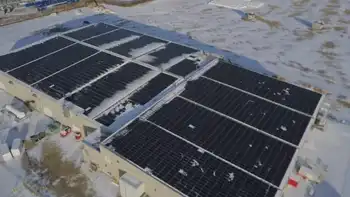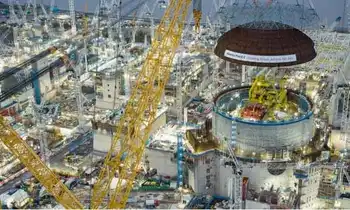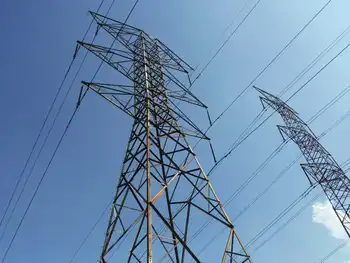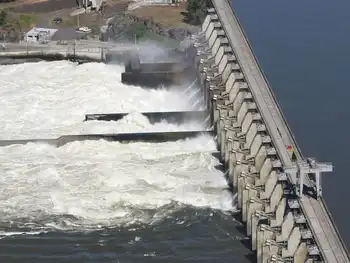Power plant closed after Cal-OSHA inspection
The increased scrutiny of the city's highly touted utility comes as a dispute over safety issues rages between Silicon Valley Power and some employees — including a whistle-blower from the cleanup of the notorious Three Mile Island nuclear power plant.
On November 14, a utility employee found a massive tank of 235-degree water "blowing steam from every possible orifice," according to an e-mail he wrote to warn the day shift. Alarms sounded. The system had overpressurized. But the worker was able to turn off the tank before it blew.
The Robert Avenue plant, which produces electricity and steam for the equivalent of 7,000 homes and a recycling facility, remained open. It shut down December 2, one day after a state inspection prompted by a faxed complaint from two employees.
Cal-OSHA, which monitors workplace safety conditions, would say little about the closure, and the utility manager has given confusing statements about who ordered the shutdown.
Electric Division manager Orville Plum told a Mercury News reporter recently that the utility already had voluntarily planned to shut down the plant at 10 p.m. December 2 when Cal-OSHA inspected the plant on December 1. But in a December 15 e-mail to employees obtained by the Mercury News, Plum said Cal-OSHA "required" the plant to shut down.
When asked about the discrepancy, Plum said the shutdown was "collaborative." He said Cal-OSHA requested that the plant shut down at 10 a.m. instead of 10 p.m., which he added the utility did.
Two men who work under Plum, generation technicians Rick Parks and Mark Holtz, who help operate and monitor the city's three plants, said they considered the November 14 incident a "near miss" for an explosion and were alarmed the plant kept operating without any additional review or safety improvements.
Plum said he considered the incident an "abnormal event that needed further investigation," not a "near miss." Before Cal-OSHA arrived, managers had decided to install a relief valve on the tank, according to an e-mail.
On November 24, Parks and Holtz faxed a complaint to Cal-OSHA.
Plum said he believed the maintenance and fixes would cost less than $200,000 and he hoped the plant would reopen later this month. In the meantime, the recycling company is producing its own steam and customers are receiving electricity from a larger network of energy sources owned by the utility.
Erika Monterroza, a Cal-OSHA spokeswoman, said: "For whatever reason, Silicon Valley Power has not provided sufficient detail for them to get the green light" to reopen the Robert Avenue site. She quickly added, "They've been extremely cooperative."
Now the federal government is involved, too.
On Jan. 20, inspectors from the Department of Transportation's Office of Pipeline Safety visited the Donald Von Raesfeld Power Plant, the utility's main facility, followed by a Cal-OSHA visit on January 28. Neither government office would say much about their visits. Silicon Valley Power generates and distributes enough electricity to power the equivalent of 500,000 homes and has an annual revenue of about $300 million a year. State records show the utility has a good safety record, including no known fatalities.
But a small group of employees say there is a crack in the veneer of the city's proud mantra that Silicon Valley Power is a world-class utility, providing among the cheapest electric rates in California.
"It's basically an attitude by management that they know what they're doing, and they don't," said Parks, who worked on the cleanup at Pennsylvania's Three Mile Island nuclear plant years before taking a job at the utility in 2006. "They insist they have an open-door policy. But it only exists for people who are yes men."
Parks and his colleagues provided the Mercury News a sampling of e-mail conversations and labor complaint forms totaling about 400 pages culled since January 2009. In those documents, Parks and his colleagues warned managers about 20 times regarding potential safety violations and the lack of formal communication between shifts. One of the chief concerns, highlighted by former technician Jorge Jaime in May, was the lack of "relief valves" on some of the equipment.
Managers at Silicon Valley Power dispute the allegations.
"We take safety extremely seriously and we're very proactive about that," said Larry Owens, manager of customer relations. "We want to do things right."
Parks gained notoriety in 1983, when his former employer, Bechtel, was hired to clean up the partial core meltdown at Three Mile Island Nuclear Generating Station in Pennsylvania. Parks was worried about using a crane to clean up the debris because the machine had been damaged, and he feared it hadn't been tested properly.
After he went public, Bechtel suspended him, but after testifying before Congress, he was reinstated by the Department of Labor.
Related News

Solar-powered pot: Edmonton-area producer unveils largest rooftop solar array
EDMONTON - Electricity consumption is one of the biggest barriers to going green in the cannabis industry, but an Edmonton-area pot producer has come up with a sunny solution.
Freedom Cannabis unveiled the largest rooftop solar system used by a cannabis facility in Canada at its 126,000-square foot Acheson location, 20 kilometres west of Edmonton, on Tuesday.
The "state-of-the-art" 1,830-kilowatt solar array—made up of 4,574 panels—was supplied by Enmax and will offset more than 1,000 tonnes of greenhouse gas emissions each year, the company said.
The state-of-the-art solar array—made up of 4,574 panels—was supplied by Enmax and will offset more than 1,000 tonnes…





